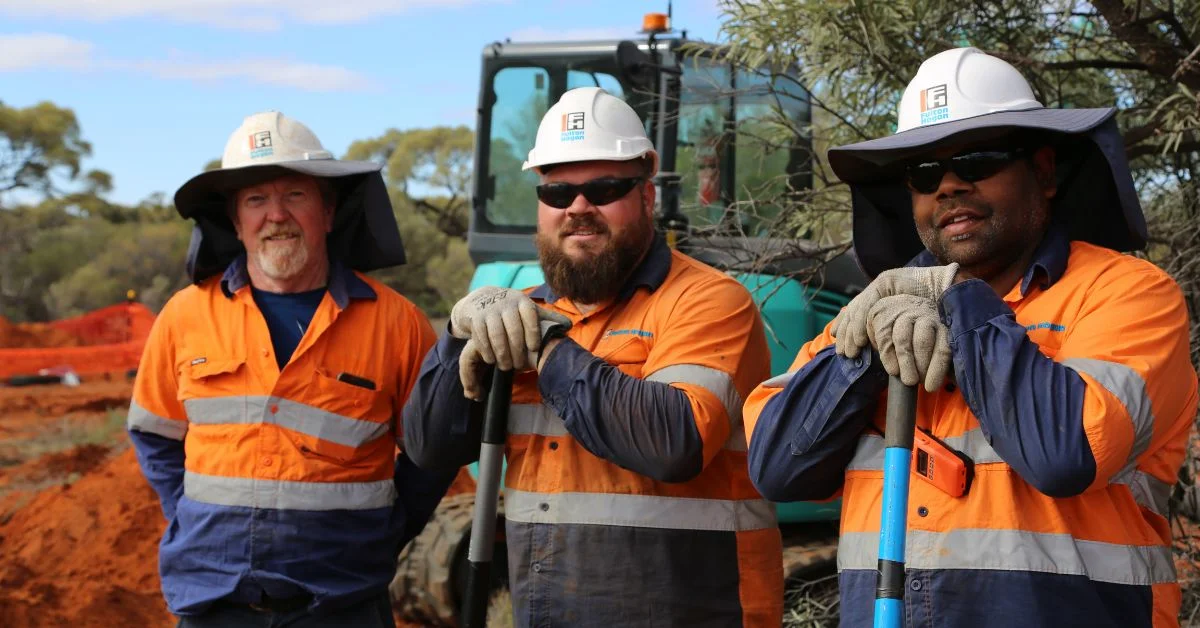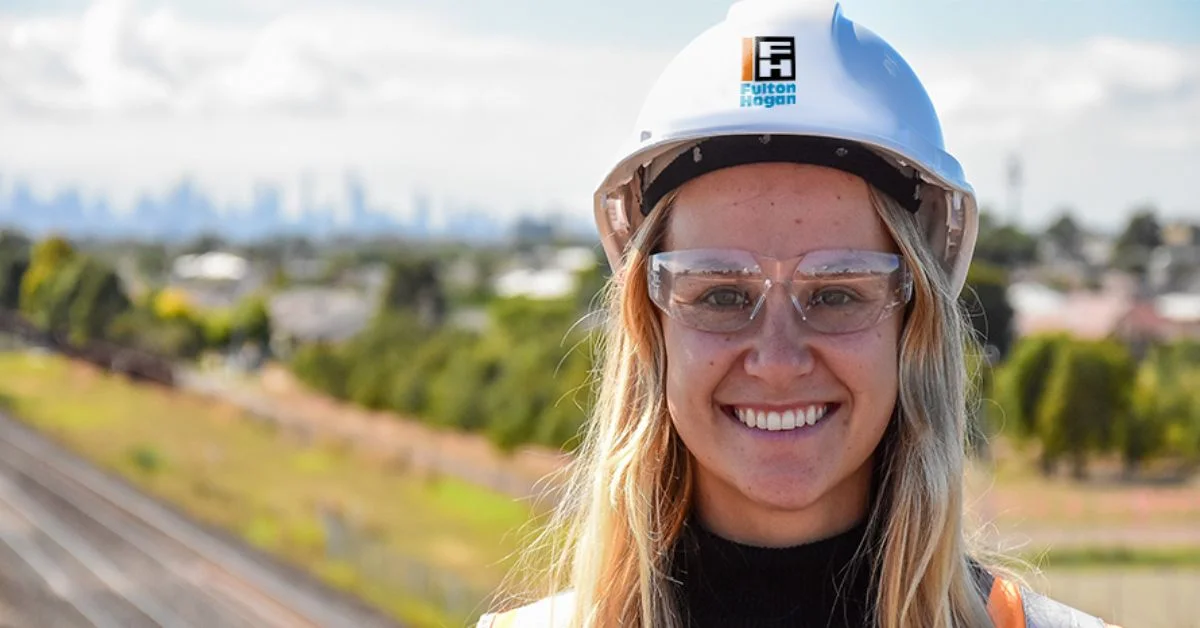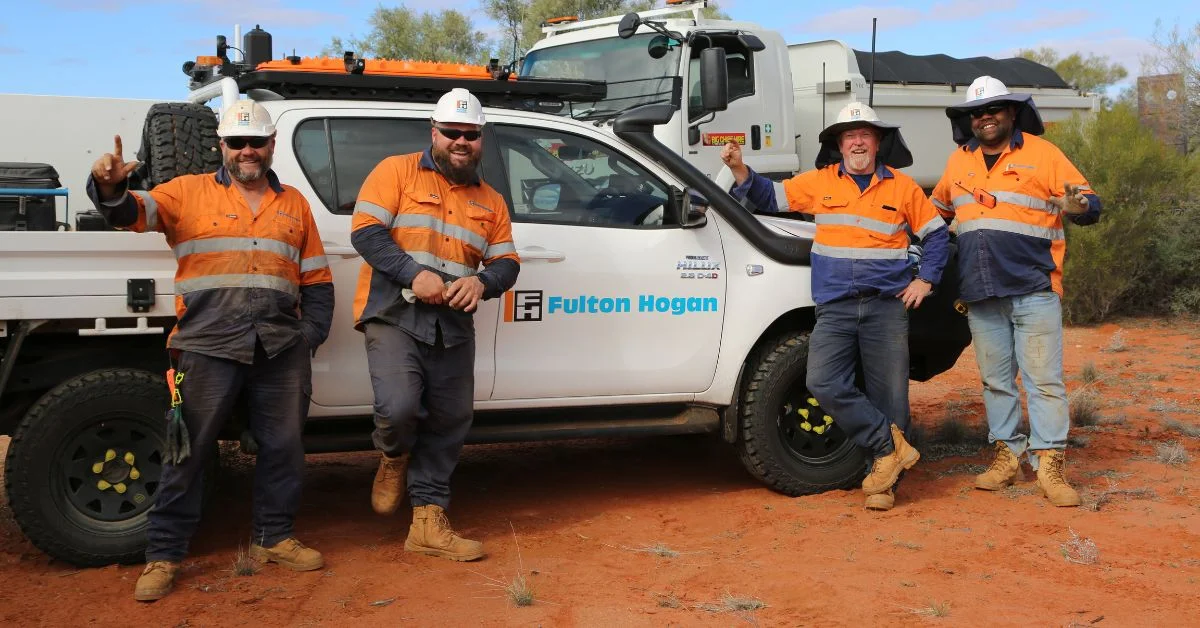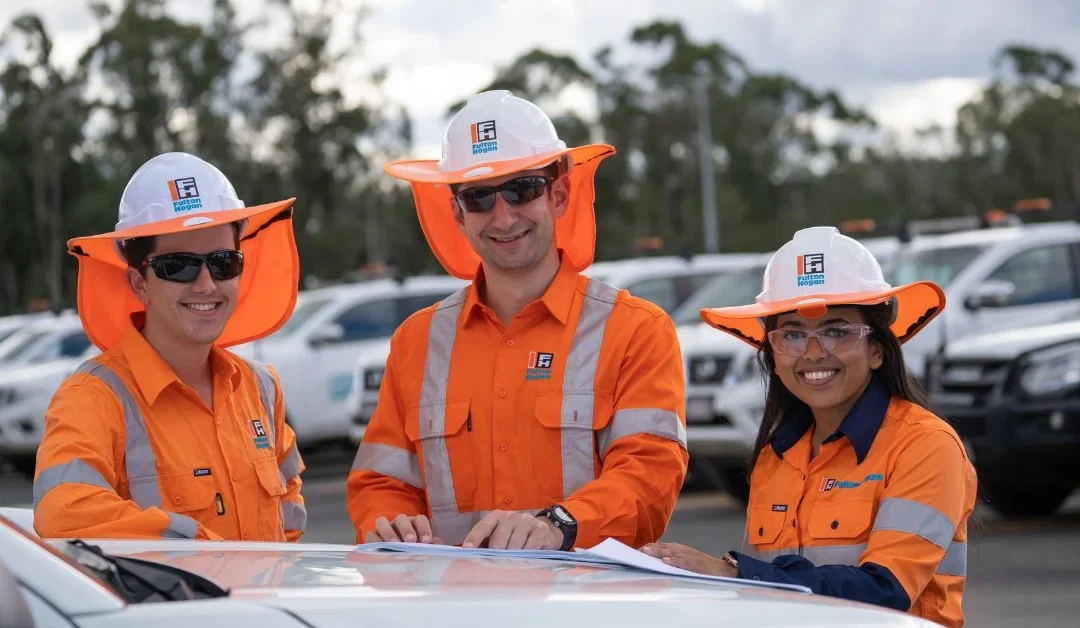As the backbone of Australia’s infrastructure development, the construction industry employs nine per cent of the Australian workforce, making it the third largest workforce in Australia.
The industry has long faced a battle with disproportionately high rates of mental illness and suicide. Sadly, an Australian construction worker takes their own life every second day, with workers in the industry six times more likely to die from suicide than an accident at work. Young male construction workers experience suicide rates at double the national average, indicating a pressing need for targeted interventions.
An Australian study revealed that between 2001 and 2019, suicide deaths within the construction industry accounted for a quarter of all deaths by intentional self-harm. While this significant over-representation of construction workers points to an urgent mental health crisis within the industry, the report also shared a glimmer of hope. During this time, the gap in suicides between construction workers and non-construction workers narrowed.
The decline indicates that early intervention and prevention strategies may be making an impact and emphasises the need for continued and robust mental health strategies to continue to change the narrative for construction workers.

Leading the charge for organisational and industry-wide change
As one of the major civil and resources contractors operating across Australia, New Zealand and the Pacific, Fulton Hogan is leading the charge for mental health in the construction industry. At the helm of the organisation’s national efforts to drive organisational and industry-wide change is Sarah Marshall, Executive General Manager of People, Safety and Sustainability.
Sarah is the chair of Fulton Hogan’s National Mental Health Steering Committee in Australia and, along with her fellow executive team, has been a key advocate for impactful organisational and nationwide change in response to the industry’s higher rate of mental health problems and suicide.
Fulton Hogan established the national committee in 2020, understanding the organisation’s duty of care in responding to the industry’s mental health crisis, which had been further compounded by COVID-19. The committee developed a five-year comprehensive mental health strategy to expand the company’s focus on physical safety and accident prevention to include mental health intervention and suicide prevention.
A peer approach to mental health support
In the development of the strategy, it was clear that a unified, collaborative approach was needed. The nature of construction work lends itself to unique challenges that can significantly impact mental health, as the industry’s demanding physical requirements, long hours, high stress, limited resources, and confrontational and high-risk culture create a backdrop for potential risk factors related to mental illness.
On top of the risk factors within the industry, Fulton Hogan recognised the broader challenges faced by individuals in accessing mental health support. The past few years have placed unprecedented pressure on Australia’s health system, presenting barriers for people to access timely support.
Sarah says that while GPs and employee assistance programs (EAPs) are helpful for mental health support, access to these services requires an individual to recognise that they are struggling and take the first step to making an appointment.
“Traditionally in construction, we have teams all over Australia that don’t have easy access to support services. They only have each other. The reality is, in most cases, individuals need someone that they can trust to be there so they can vocalise how they are feeling to make it real and seek help.”
As an organisation that puts its people at the heart of everything it does, Fulton Hogan saw Mental Health First Aid® (MHFA®) training as a way to drive this message home and initiate change. MHFA training provided the opportunity to upskill employees to provide immediate initial support to someone in the organisation who may be grappling with mental health problems, providing a crucial bridge to professional help where needed.
“MHFA training has helped us create a network of trusted peers for someone to reach out, have a conversation with, and encourage them to seek professional help early. In doing that, we may save someone’s life,” Sarah explains.
By fostering open communication and providing a supportive environment, employees feel empowered to seek help without the barriers often associated with formal support systems. This approach becomes a vital complement to the broader organisational strategy.

Training their people
As an organisation well versed in project management, the team understood that the key to measuring outcomes was to set a target. During the planning phase, Fulton Hogan set a goal to have one to two trained Mental Health First Aiders® at every construction site and office in Australia. Three years into its strategy, 80 per cent of Fulton Hogan’s CEOs and General Managers, and more than 580 employees, have received training and now have the skills to recognise and respond to a colleague in need, and people who might experience a mental health problem should have access to a Mental Health First Aider (MHFAider®).
As part of their strategy to have at least one trained MHFAider in every office and on every worksite, the team aimed to train people across all levels and functions of the organisation.
Romy Sullivan, National People and Culture Manager of the Fulton Hogan Construction business, says it was encouraging to see so many people come out of the MHFA training feeling empowered and equipped to identify a mental health problem and take the steps to provide initial support to someone in need.
“Many participants went into the training believing they had to be mental health experts to help, but the overwhelming consensus was that people left the training equipped with the tools needed to assist people across the organisation,” Romy explains.
Breaking down barriers to disclosure
Despite an increase in mental health awareness over the past few years, several barriers continue to stand in the way of mental health disclosure. One of the primary barriers to disclosure from construction workers is the stigma that still looms heavily within the industry.
“Rates of help-seeking tend to be low in male-dominated industries like construction, where stigma around mental health issues remains quite high,” Sarah comments.
Construction is a male-dominated industry with men making up more than 80 per cent of the workforce. With stigma still shrouding the industry, qualities of toughness and strength can prevail, and discussions around mental health and mental illness can be met with shame, fear or judgement.
With a significant number of Fulton Hogan’s Australian workforce now trained in Mental Health First Aid, the organisation is seeing a cultural shift in perceptions and openness around mental health disclosure.
“Mental Health First Aid training has paved the way for us to break down barriers and stigma associated with mental health by improving our people’s awareness and understanding. Our people now have a better understanding of mental health, which enables them to be more effective in handling issues that may arise and implement proactive measures to address a potential mental illness,” Sarah explains.

Paving the way for a mentally healthier workplace
As a result of the MHFA training, the fear and hesitation that once accompanied any mention of “mental health” is dwindling at Fulton Hogan, with more and more staff encouraged to openly talk about mental health and share their lived experiences. The MHFA training has equipped their team with a mental health toolbox, helping them understand how to talk about mental health and mental illness in an open and informed way.
Fulton Hogan credits MHFA training for the success of an organisation-wide campaign called “20 Reasons to Speak Up”, that empowers employees to courageously share their own experience with mental ill-health with the broader organisation.
Sarah says the campaign has received resounding support from across the workforce: “The campaign has been pivotal in further breaking down barriers, building relationships and sharing lived experiences. It sees our people share their lived experiences with mental health challenges in short videos that are shared across sites and units with the aim of encouraging others to speak up and get help when they need it.”
An award-winning commitment to mental health
Fulton Hogan’s commitment to the mental health and well-being of its people is garnering national and state attention as it helps to set the standard for how workplaces can respond to the high rates of mental illness and suicide within the industry.
In 2022, Fulton Hogan was recognised as a Skilled Workplace in the Mental Health First Aid Australia Workplace Recognition Program for its integrated, sustainable approach to Mental Health First Aid training. The organisation has also received Suicide Prevention Australia’s 2023 Victorian Workplace LiFE (Living is For Everyone) Award in recognition of its commitment and determination toward suicide prevention within its workforce.
Sarah Marshall says Fulton Hogan is incredibly proud to receive this recognition and to be paving the way for the mental health of the industry.
The active leadership at Fulton Hogan, commitment to Mental Health First Aid training, and open and honest conversations means we are starting to reduce the stigma related to mental illness and are encouraging our people to seek help early.”
“In a world where mental health illness is on the rise and the pressure on the health system seems to be at breaking point, I am so pleased that Fulton Hogan is leading the way in the workplace.”



